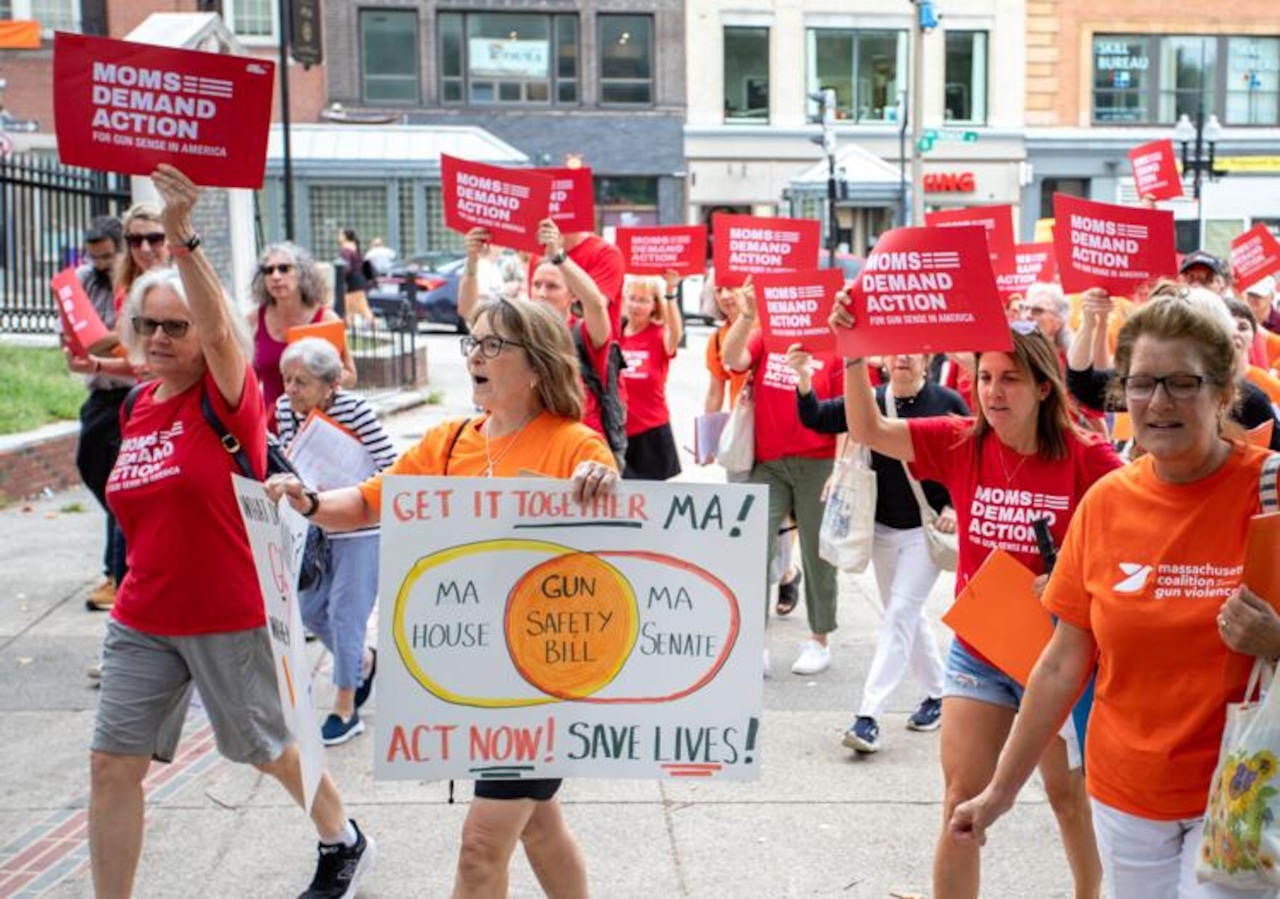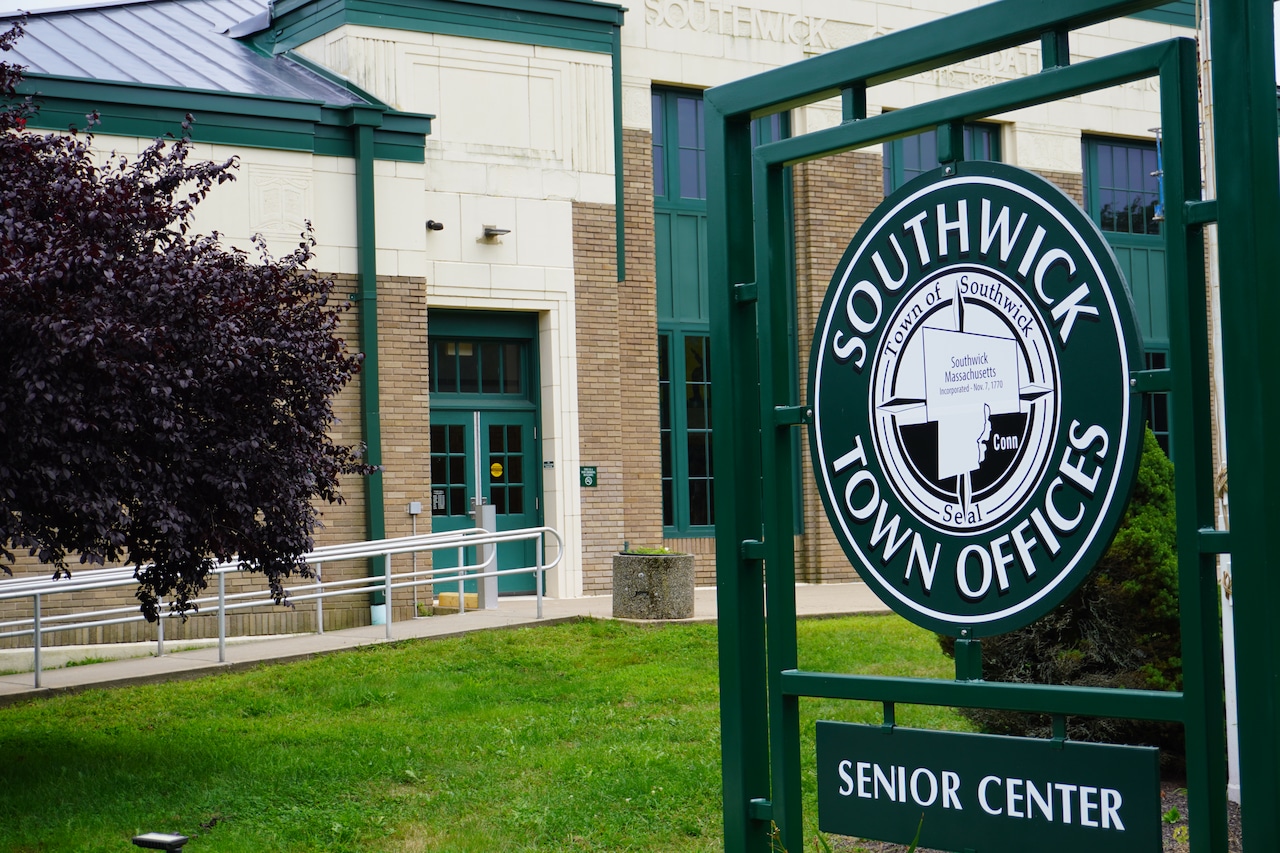
When Gov. Maura Healey signed a long-awaited suite of reforms to the Bay State’s already restrictive gun laws last month, she expanded a provision that many believe is critical to keeping people safe.
Namely, adding to the ranks of those who can petition a judge to temporarily take firearms away from people who are believed to pose a danger to themselves or others.
While the law often is used to head off the kinds of mass shootings that have rocked communities across the country over the last decade, it’s also been employed to prevent the most personal and devastating tragedies:
Deaths by suicide.
But now, the law is under threat by gun-rights advocates, who are both suing in federal court and mounting an effort to get it overturned on the statewide ballot as soon as 2026.
“It’s not about crime. It’s not about accidents. It’s not about suicides,” Jim Wallace, the executive director of the Massachusetts Gun Owners Action League, said.
Instead, the law is a “bigoted act against 10% of the state’s population,” Wallace told The Associated Press, referring to gun owners.
Massachusetts first authorized such “extreme risk protection orders,” or ERPOs, in 2018. The statutes are popularly referred to as “red flag” laws.
Under its language, a local police department or a broadly defined “family or household member” could make such a request to a judge.
Under the newly approved revisions, which also take on so-called “ghost guns” and expand the state’s existing assault weapons ban, school administrators and licensed health care providers also would be allowed to go to court.
The Massachusetts lawsuit comes amid a broader, nationwide effort to overturn red flag laws, according to an investigation by The Trace, a news site that focuses on gun violence, and Rolling Stone magazine.
The Bay State bill is “the most significant gun safety reform package that Massachusetts has seen in a decade,” state House Speaker Ronald J. Mariano, D-3rd Norfolk, said in a statement last month after Healey signed the legislation into law.
And there are some encouraging numbers to back up the rhetoric.
Recently released data suggest that ERPOs, while not a cure-all, do help to reduce suicide deaths involving firearms.
The study, published this month by The Journal of the American Academy of Psychiatry and the Law, examined risk orders for 4,583 people in California, Connecticut, Maryland and Washington.
Researchers found that between “17 and 23 ERPOs [were] needed to prevent one suicide.” That number shrunk to between 13 and 18 ERPOs for a subset of 2,850 people with a “documented suicide concern,” according to the study.
“Clearly, ERPOs alone are not a panacea for preventing firearm injury and mortality in the United States, but they are an important piece in the puzzle of gun violence prevention, and this study adds to the evidence suggesting they have saved lives,” the study’s authors wrote.
Some 800,000 people have died by suicide nationwide over the last two decades — more than half of those deaths were the result of self-inflicted firearms injuries, researchers wrote.
Statewide, 453 people died by suicide in Massachusetts in 2021, state data show, a rate of 13.3 deaths per 100,000 people.
In the overwhelming majority of cases, those deaths were prompted by a “current mental health problem) (59.8% among men; 79% among women).
Firearms were the second most common method among men, accounting for 27.4% of deaths, behind hanging at 45.5%, that same data showed.
Firearms accounted for 6.3% of suicide deaths among women in 2021, the state data show. Hanging (43.4%) and poisoning (38.5%) were the most common methods among women.
The Massachusetts Medical Society has described gun violence as a “public health emergency,” and has urged “evidence-based interventions” to reduce the number of injuries and deaths.
In an email, a Healey administration spokesperson told MassLive that the Democratic governor “knows that Massachusetts’ strong gun laws save lives – especially our Extreme Risk Protective Order (ERPO) statute.
Healey “was proud to sign the state’s most significant gun safety legislation in a decade, which takes additional steps to strengthen the ERPO statute and prevent guns from falling into the wrong hands,” the spokesperson said.
In the face of continuing suicides by firearms, “interventions that can effectively keep guns out of the hands of people at imminent risk of harm to themselves or others should be a key component of an effective public health effort to reduce the number of these preventable tragedies,” the study’s authors wrote.
If you need help
If you or someone you know is having a mental health crisis dial 988 to talk to mental health counselors/providers. For more information about suicide prevention and how you can help, visit the National Suicide Prevention Lifeline.





